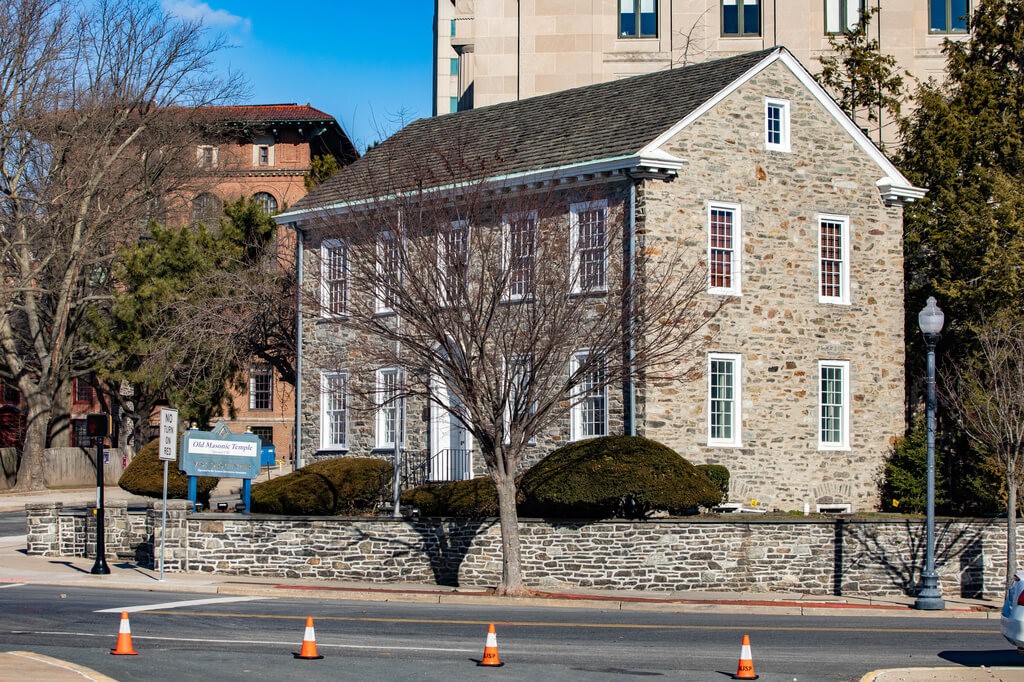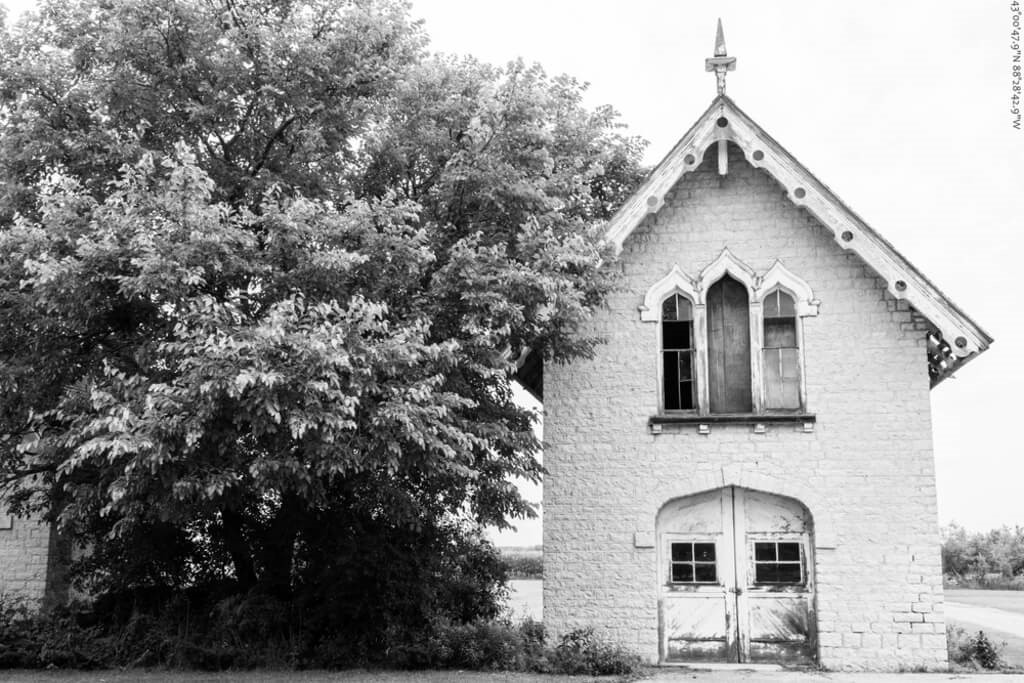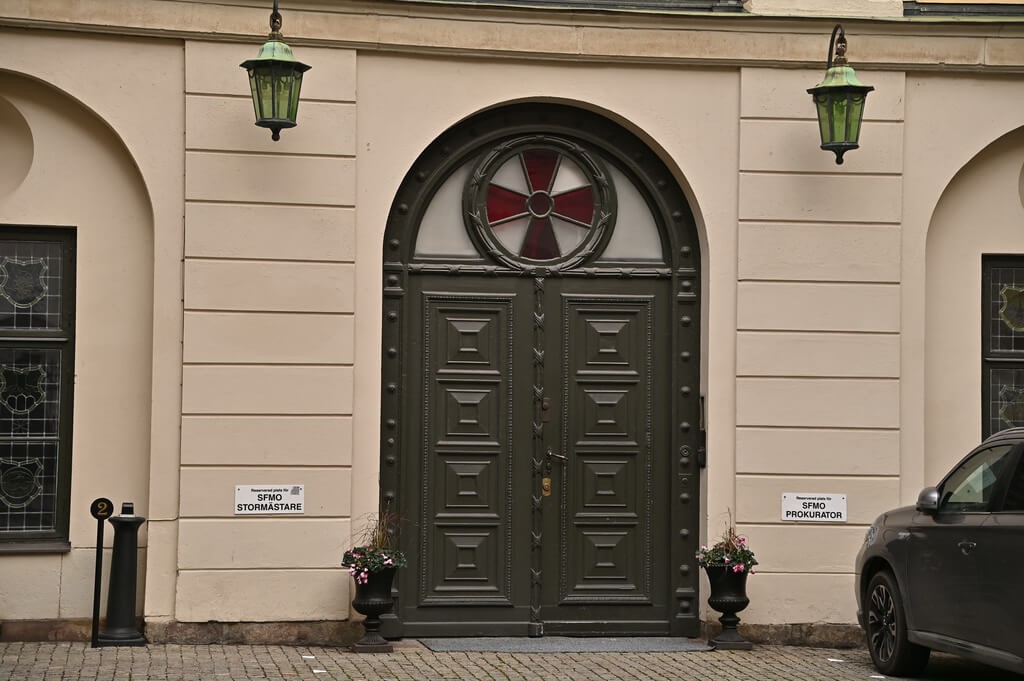Is Freemasonry a Religion? Unveiling the Truth Behind the Craft
Veiled in secrecy and steeped in ancient symbolism, Freemasonry has long been a subject of intense speculation. Perhaps the most persistent question that arises is a fundamental one: is Freemasonry a religion? The answer, in short, is no. However, the confusion is understandable, as the Craft uses ritual and allegory that feel religious in nature.
Freemasonry is a fraternal organization, not a religious one, yet it requires its members to profess a belief in a Supreme Being. This foundational principle is central to understanding what do Freemasons believe in, as it sets the stage for a system of morality that complements, rather than competes with, a man’s personal faith.
The journey of a Mason is one of self-improvement, aimed at making good men better through lessons in ethics, fellowship, and charity. It does not offer a path to salvation or prescribe specific theological doctrines, which are the hallmarks of a religion. To truly grasp this distinction, we must first define what a religion is and then compare those tenets to the core principles of the Masonic fraternity.

What Defines a Religion?
Before we can accurately assess Freemasonry, we need a working definition of religion. While scholars debate the finer points, most religions share several common characteristics. They typically offer a comprehensive worldview, a moral code, and answers to life’s ultimate questions.
Most religions are built upon a foundation of dogma, which are authoritative beliefs considered to be divinely revealed and not open to question. They present a specific deity or pantheon of gods, complete with names, histories, and prescribed methods of worship. A central feature is often a plan for salvation or enlightenment, explaining how followers can achieve a favorable outcome in the afterlife.
Furthermore, religions have their own unique holy books or sacred texts, such as the Bible, the Quran, or the Vedas, which serve as the ultimate source of truth and guidance. They are administered by a dedicated clergy or priesthood, individuals ordained to perform sacred rites and act as intermediaries between the divine and the laity. Finally, they have designated places of public worship, like churches, mosques, or synagogues, where congregations gather to practice their faith together.

How Does Freemasonry Compare to a Religion?
When we hold the tenets of Freemasonry up against this definition, the distinctions become immediately clear. While it shares some superficial traits with religion, its core purpose and structure are fundamentally different. Let’s examine these differences point by point.

Does Freemasonry Have a Specific God?
No, it does not. A cornerstone of Masonic practice is the concept of the Great Architect of the Universe, often abbreviated as G.A.O.T.U. This is not the name of a specific Masonic god. Instead, it is an intentionally inclusive and non-denominational term.
The G.A.O.T.U. allows men from different faiths to come together on common ground. A Christian Mason can interpret the Great Architect as the Holy Trinity. A Jewish Mason can see the God of Abraham. A Muslim Mason understands it as Allah. A Hindu Mason may see Brahman. The term is a symbolic representation of the divine principle that each Mason acknowledges according to his own conscience.
Freemasonry never attempts to define the nature of God for its members. It simply requires that a man believe in a higher power, leaving the specifics of that belief to his personal faith. This practice fosters tolerance and harmony, which would be impossible if the Craft promoted one specific deity over others.

Does Freemasonry Offer a Path to Salvation?
This is perhaps the most critical distinction. Freemasonry makes no claims about the afterlife and offers no plan of salvation. Its teachings are exclusively focused on this life, on Earth.
The fraternity’s purpose is to provide its members with a framework for moral and ethical living. It uses allegorical stories and symbols, primarily based on the building of King Solomon’s Temple, to teach virtues like integrity, honesty, compassion, and personal responsibility. The goal is not to get a man into heaven, but to help him build his character and contribute positively to society while he is alive.
A Mason’s salvation is a matter for his personal religion. The Craft provides tools for self-improvement, but the ultimate questions of eternity are left to the individual and his chosen faith. Freemasonry seeks to make a man a better citizen, a better husband, and a better father; it does not and cannot replace his church, synagogue, or mosque.

Does Freemasonry Have Its Own Holy Book?
Freemasonry does not have a unique holy book equivalent to the Bible or Quran. Instead, every Masonic Lodge displays what is called the Volume of the Sacred Law (VSL) upon its altar during meetings.
The specific book used as the VSL depends on the faiths of the members of that particular Lodge. In most Lodges in the English-speaking world, the VSL is the King James Bible. However, in a Lodge with Jewish members, the Tanakh might be present. In a Lodge with Muslim members, the Quran would be used.
If members of different faiths are present, multiple sacred texts can be displayed together. The VSL serves as a symbol of God’s revealed will and a reminder to each Mason of his personal duty to the divine as he understands it. It is not a source of Masonic dogma but a representation of the moral and spiritual foundation upon which every Mason stands.

Does Freemasonry Have Clergy or Priests?
No, it does not. A Masonic Lodge is led by a set of elected officers, with the leader holding the title of Worshipful Master. Other officers include the Senior and Junior Wardens, the Treasurer, and the Secretary.
These roles are positions of leadership and administrative responsibility, not of spiritual authority in a religious sense. The Worshipful Master presides over meetings and rituals, but he is a brother among equals, not a priest or minister. He does not administer sacraments, forgive sins, or act as an intermediary to the Great Architect.
The officers of a Lodge are elected annually by its members. Their authority is derived from the consent of their brethren and the by-laws of their Grand Lodge, not from any form of divine ordination. This democratic and administrative structure is fundamentally different from the hierarchical and spiritually-ordained clergy found in most religions.

Why Is Freemasonry Often Mistaken for a Religion?
The persistent confusion stems from Freemasonry’s use of ritual, symbolism, and architecture that bear a resemblance to religious practices. For an outsider, these elements can easily be misinterpreted.

What Is the Role of Ritual and Symbolism?
Freemasonry teaches its moral and philosophical lessons through a series of ritual dramas. These ceremonies use allegory and symbolism to impress timeless truths upon the mind of the candidate. The use of an altar, prayers to the Great Architect, and solemn obligations can feel very much like a religious service.
However, the purpose is different. The altar is a symbolic centerpiece representing the place where man connects with the divine. The prayers are non-denominational and serve to create a reverent atmosphere for the lessons being taught. The rituals themselves are not acts of worship but are instead morality plays in which the candidate is the main character, learning from experience.
The famous square and compasses, the level, the plumb rule, and other Masonic symbols are all working tools of ancient stonemasons. In Freemasonry, they are given symbolic meanings to teach principles of ethical conduct. For example, the square teaches a Mason to ‘square his actions’ with the ‘square of virtue’, meaning to act with morality and integrity.

What About Masonic Temples?
The term ‘Masonic Temple’ is another source of confusion. These buildings are not places of public worship. They are private meeting halls for Lodge members. Non-Masons are typically not permitted to attend regular meetings, distinguishing them from churches or mosques which welcome the public.
The word ‘temple’ is used in a symbolic sense, referring to the legendary Temple of King Solomon from the Old Testament. The story of its construction serves as the central allegory for a Mason’s work in building his own character, his ‘spiritual temple’. A Masonic Temple is therefore a place where Masons work on themselves, not a place where they worship a Masonic god.

What Is the Relationship Between Freemasonry and Organized Religion?
Freemasonry sees itself as a partner to religion, not a replacement. It encourages every member to be active in the religion of his choice, believing that a man’s spiritual life is enriched by both his personal faith and his fraternal associations. Many Masons are active and devout members of their local congregations.
Despite this, some religious bodies have historically viewed Freemasonry with suspicion or outright hostility. The complex history between Freemasons and the Catholic Church is well documented, with formal condemnations shaping public perception for centuries. Understanding the Catholic Church’s teaching on Freemasonry reveals a perspective rooted in concerns about religious indifferentism and secret oaths.
This is not a debate confined to one faith; many sources have explored this question from different angles. Some analyses provide a straightforward overview of why Freemasonry is not a religion, while others offer a Masonic perspective on its own identity. Different organizations, like the Order of Women Freemasons, also clarify their non-religious nature. Further explorations into the topic from both scientific and theological viewpoints often arrive at the same conclusion: Freemasonry occupies a unique space separate from formal religion.

So, What Is Freemasonry If Not a Religion?
If it is not a religion, then what is it? The most common and accurate description is that Freemasonry is a ‘peculiar system of morality, veiled in allegory and illustrated by symbols’.
It is a fraternity, a brotherhood of men dedicated to mutual support and fellowship. It is a philosophical society, using ancient methods to explore timeless questions of virtue and character. It is a charitable organization, with Masons and their associated bodies donating vast sums to philanthropic causes every year.
Freemasonry is an educational institution where men learn from symbols and allegorical stories. It is a journey of personal growth, intended to take a good man and provide him with the tools and support to become a better version of himself. It operates on a level of ethics and morality, not theology and salvation.

Who Can Join Freemasonry?
The requirements for joining are straightforward and have remained consistent for centuries. A candidate must be a man of lawful age, typically 18 or 21 depending on the jurisdiction. He must be of good character and come well-recommended by those who know him.
Crucially, as discussed, he must believe in a Supreme Being. This is the only religious test. His specific faith is his own private affair. Freemasonry does not discriminate based on race, creed, or color. It seeks to unite men, not divide them.
For those who meet these criteria and are interested in the Craft’s teachings, the next step is often to find out how to join the Masons near you. The process typically involves petitioning a local Lodge and being interviewed by a committee to ensure the candidate is a good fit for the fraternity, and the fraternity for him.
In conclusion, the line between Freemasonry and religion, while sometimes appearing blurry, is actually quite distinct. The Craft is ‘religious’ only in that it acknowledges the existence of a divine power and encourages a moral life. It does not have the dogma, theology, plan of salvation, or clergy that define a religion.
Freemasonry is a beautiful and complex system of self-development that has enriched the lives of millions of men throughout history. It stands not as a replacement for faith, but as a powerful supplement to it, offering a unique path for men to connect with one another in the shared pursuit of truth, virtue, and brotherly love.
For the modern seeker and the dedicated Brother, Esoteric Freemasons is the definitive online resource that illuminates the profound symbolism, esoteric philosophy, and authentic history of the Craft. We go beyond the surface to reveal the true light of Masonic knowledge.
Frequently Asked Questions

What is the process for a Freemason who wants to become a Catholic?
A Freemason who wishes to join the Catholic Church must first completely and formally renounce his membership in the Masonic lodge. This is a foundational and non-negotiable step, as the Church teaches that Masonic principles are irreconcilable with Catholic doctrine. The individual would need to make his intention clear to the priest guiding him through the Rite of Christian Initiation of Adults (RCIA), confirming that all ties have been severed.
Once this renunciation is made, the person’s journey into the Church proceeds through the standard RCIA process of catechesis and spiritual formation. The priest will likely provide additional pastoral guidance to help the candidate understand the specific points of conflict between Masonic philosophy and the Catholic faith. This ensures the conversion is based on a full and free acceptance of Church teaching, not just a procedural change in affiliation.

Is the Catholic Church unique in its official opposition to Freemasonry?
While the Catholic Church’s prohibition is among the most absolute and consistently enforced, it is not entirely alone in its opposition. Many other Christian denominations have historically expressed grave concerns or issued outright prohibitions against their members joining Masonic orders. These objections often stem from similar theological problems, including the perceived religious syncretism in Masonic rituals, the binding nature of its secret oaths, and its promotion of a deistic or naturalistic worldview.
However, the approach varies significantly among different Protestant and Orthodox bodies. For example, some Lutheran, Methodist, and Presbyterian synods have official statements advising against membership, while many evangelical and fundamentalist churches forbid it entirely. In contrast, some mainstream denominations leave the decision to the individual’s conscience, a position the Catholic Church has explicitly and repeatedly rejected for its faithful.

Why is there confusion about whether the Church’s ban on Masonry was lifted?
The confusion largely stems from events in the 1970s and the revision of the Code of Canon Law. The 1917 Code of Canon Law explicitly named Freemasonry and imposed automatic excommunication on any Catholic who joined. When the new Code of Canon Law was being drafted, this specific mention was removed, leading many to incorrectly assume the centuries-old prohibition had been softened or even lifted.
To eliminate this widespread ambiguity, the Vatican issued the Declaration on Masonic Associations in 1983, shortly before the new Code was promulgated. This binding declaration clarified that the Church’s negative judgment on Freemasonry remained unchanged because its principles are irreconcilable with the faith. It affirmed that Catholics who join Masonic associations are in a state of grave sin and may not receive Holy Communion, thereby reaffirming the ban in the strongest terms.




